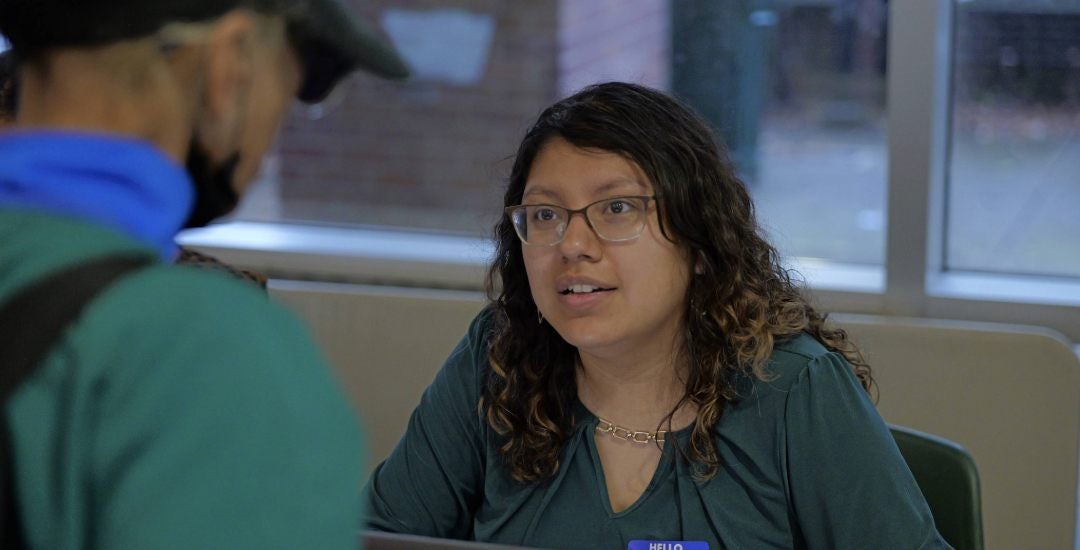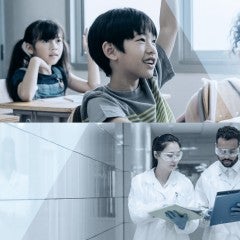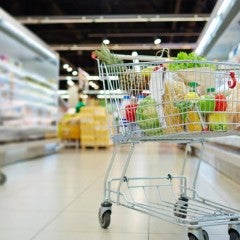While Kinder Institute research has shown that Houstonians believe the government should reduce economic inequality and provide a basic standard of living, thousands of eligible households don’t receive the assistance that already exists.
“Public benefits are economic mobility,” said Elaine Morales-Díaz, the senior director of partnerships and policy at Connective. “People can’t plan their budgets, receive financial coaching or participate in workforce programs when they are drowning in expenses and struggling to pay rent. Public benefits can be that safety net that allows people to pull their heads out of the water.”
Connective’s Harvey Home Connect program sped up the process for repair and access to repair services for hundreds of homes affected by Hurricane Harvey in 2017. In addition to disaster response efforts, Connective expanded its reach into public benefits access in 2023 with the launch of Unlock My Benefits Texas.
“We noticed many low-income residents weren’t enrolling in public benefits. During the pandemic, we facilitated rental assistance programs, and we started noticing repeat evictions after people received the assistance, about six months or a year after,” Morales-Díaz said. “Almost half of the people in the docket would have avoided eviction if they were participating in public benefits.”
Unlocking economic impact
This year, Unlock My Benefits Texas has screened nearly 4,000 households to access $4.1 million in benefits, or about $450 per month. It has connected with residents through community outreach events hosted by the Wesley Community Center in the Near Northside, digital advertisements, flexible in-person appointments with Harris County Public Health, phone screenings by Catholic Charities, text message campaigns, walk-in screenings at the Chinese Community Center in southwest Houston and its online questionnaire.
The Supplemental Nutrition Assistance Program (SNAP) and utility assistance programs have the highest number of household sign-ups, according to Unlock My Benefits Texas data.
Fifty-two percent of participating households are receiving at least one health insurance or medical benefit. The most underused benefit by dollar value is the Children's Health Insurance Program, with over $327 million left unclaimed in Harris County.
About 250,000 county residents are eligible for some form of assistance but are not receiving it. That estimate was closer to 500,000 before funding ended for the Affordable Connectivity Program in 2024.
“We are conservative with this under-enrollment estimate due to the inherent overlap in eligibility for multiple benefits,” Morales-Díaz said.
Barriers to obtaining public aid
Morales-Díaz said there are multiple reasons that prevent residents from receiving public aid. The lengthy documentation process has been a deterrent for some applicants, especially for individuals juggling work, child care or health issues. Some may face logistical challenges, such as a lack of transportation or limited access to technology and an internet connection.
“Difficulty navigating bureaucratic systems can serve as a deterrent. A significant portion of the eligible population simply isn’t aware of the benefits they qualify for or how to access them,” she said. “Information about available programs is often fragmented, difficult to find or not communicated in accessible ways. This is compounded by limited outreach capacity from benefit-enrolling organizations.”
In many instances, prospective applicants do not like being identified as a recipient of public aid.
“Some people feel stigma, whether from a past experience, or not self-identifying as someone who may qualify for SNAP or other benefits. That alone can discourage them from applying,” Morales-Díaz said. “Additionally, the perception that the benefit amount is too small to be worth the effort can deter participation.”
Nationally, the Urban Institute found that 4 in 10 adults reported having difficulty enrolling in safety net programs. Author and Princeton University sociology professor Matthew Desmond estimated that about $140 billion in federal assistance goes unclaimed every year in the U.S.
Locally, more than 8 in 10 Houstonians say the government should act to reduce economic inequality between the rich and poor, and that it should ensure a basic standard of living for all Americans, as reported in the 2025 Kinder Houston Area Survey.
In the 2024 survey, 67% of Harris County and Houston residents believed that government aid recipients “really need the help,” while 33% believed they were “taking advantage of the system.”
With programs like SNAP, Medicaid and WIC facing potential federal budget cuts, Morales-Díaz said Connective’s goal is to adapt to policy changes and residents’ most urgent needs.
“It's about (tapping into) what is available, and making sure that people are aware of what they're eligible for, and that they have the support they need in order to keep their benefits,” Morales-Díaz said.
She added that local and state governments, along with Houston’s nonprofit community, will be relied upon should federal funds be reduced.
“We want local governments and philanthropists to understand that the gap left from the federal government cuts has created a growing need in our community. This is a call to action, to step in where others have stepped back,” she said.



